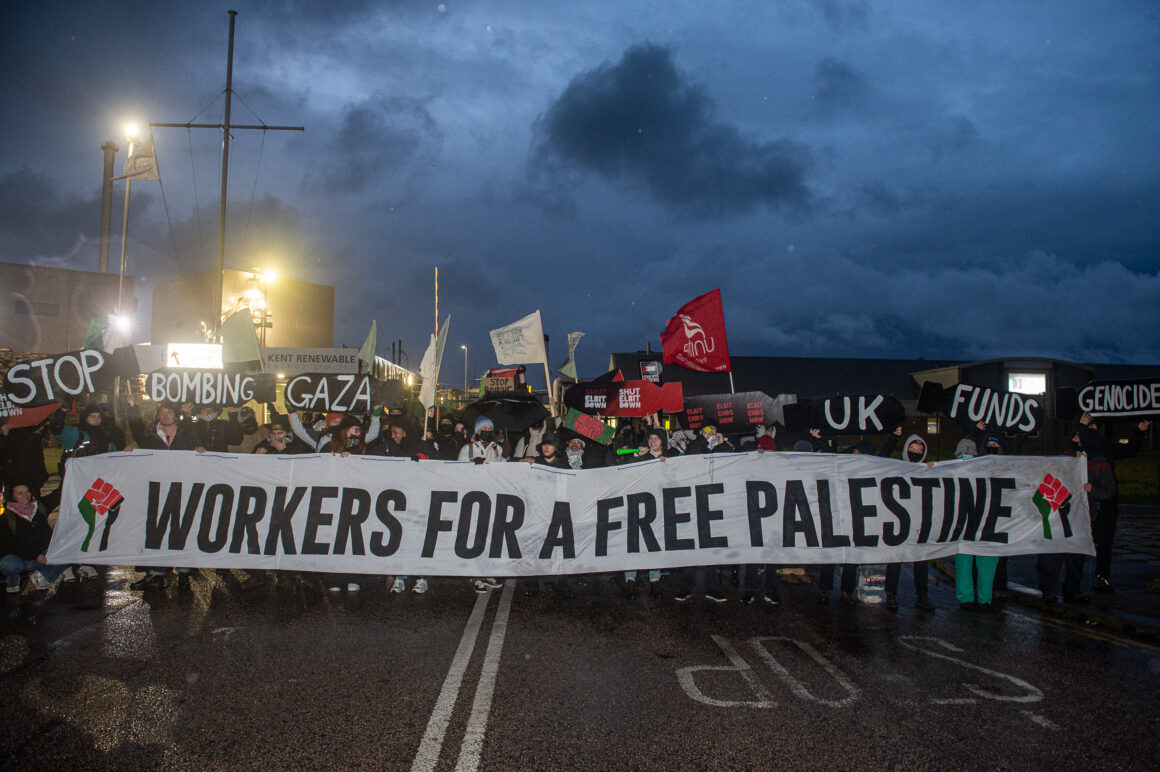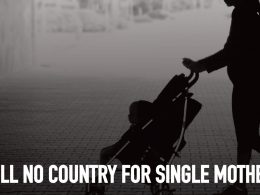By Michael O’Brien
The statement by five Belgian unions (ACV Puls, BTB, BGTK and ACV–Transcom) in the transport sector that their members will refuse to handle arms destined for the Israeli state to be used in its genocidal assault on Gaza is a welcome, practical and necessary escalation. This was followed by similar actions have been organised by dockworkers in Catalonia.
Many unions and union federations internationally have produced statements opposing the slaughter and calling for a ceasefire. FORSA in Ireland made a substantial €100,000 donation to the UNICEF relief appeal for Gaza.
Some unions in Ireland and internationally have gone beyond that and endorsed and participated in the mass mobilisations in solidarity with the people of Gaza and directed criticism at their respective governments who have supported Israel or confined themselves to calls for the massacre to be conducted within ‘international law’.
Such participation by the trade union movement internationally in the street protests must continue and expand, and financial donations that provide any measure of relief are most welcome, but it is clear that the Israeli state is prepared to put up with widespread denunciation, which is why the step taken by the Belgian and Catalonian unions is so important.
Action – not just words
Actions such as those in Belgium have occurred in the past and even when initiated by small groups of workers, such as the Scottish Rolls Royce aircraft mechanics who refused to repair the fighter jets of the Pinochet regime (as recounted in the documentary Nae Pasaran), can have an impact.
But such initiatives need to be generalised urgently. An appeal needs to be systematically made to all workers, above all unionised workers whose jobs are in any way serving the aims of the Israeli state in their genocide, to take the required action to prevent that from happening.
Any concern about the anti-trade union laws, which in many countries outlaw solidarity or ‘political’ industrial actions, should be over-ridden by the urgent need to end the slaughter. Global solidarity and motions to that effect are standard at trade union conferences, but it has typically only been in exceptional circumstances that the spirit of such motions has translated into industrial action as in the above case, or in the case of the Dunnes Stores anti-apartheid strike in Dublin in the 1980s.
Responsibility of trade unions
Workers will be far more confident taking this type of step if they know in advance that they have the support of their union. Therefore statements from unions who organise in the relevant sectors, taking their cue from what has happened in Belgium, should issue clear declarations that all such actions will be supported.
The trade union movements in a number of countries, particularly Britain, Germany and France, also need to forthrightly oppose attempts by the governments in those countries to curtail the rights of people to protest in solidarity with the Palestinian people and in opposition to the Israeli state.
This criminalisation of protest is emblematic of a general authoritarian turn by governments which, if unopposed, will be used more against the labour movement.











